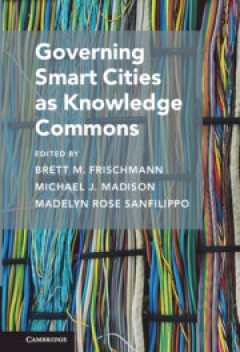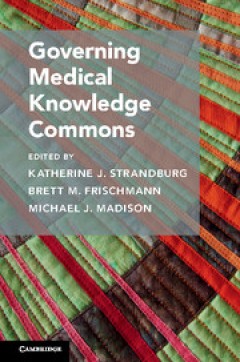Filter by
Found 2 from your keywords: author=Madison, Michael J.

Governing Smart Cities as Knowledge Commons
The rise of “smart” – or technologically advanced – cities has been well documented, while governance of such technology has remained unresolved. Integrating surveillance, AI, automation, and smart tech within basic infrastructure as well as public and private services and spaces raises a complex set of ethical, economic, political, social, and technological questions.
- Edition
- -
- ISBN/ISSN
- 9781108938532
- Collation
- -
- Series Title
- -
- Call Number
- 006.3 FRI g

Governing Medical Knowledge Commons
Governing Medical Knowledge Commons makes three claims: first, evidence matters to innovation policymaking; second, evidence shows that self-governing knowledge commons support effective innovation without prioritizing traditional intellectual property rights; and third, knowledge commons can succeed in the critical fields of medicine and health.
- Edition
- -
- ISBN/ISSN
- 9781316544587
- Collation
- -
- Series Title
- -
- Call Number
- 610.285 STR g
 Computer Science, Information & General Works
Computer Science, Information & General Works  Philosophy & Psychology
Philosophy & Psychology  Religion
Religion  Social Sciences
Social Sciences  Language
Language  Pure Science
Pure Science  Applied Sciences
Applied Sciences  Art & Recreation
Art & Recreation  Literature
Literature  History & Geography
History & Geography